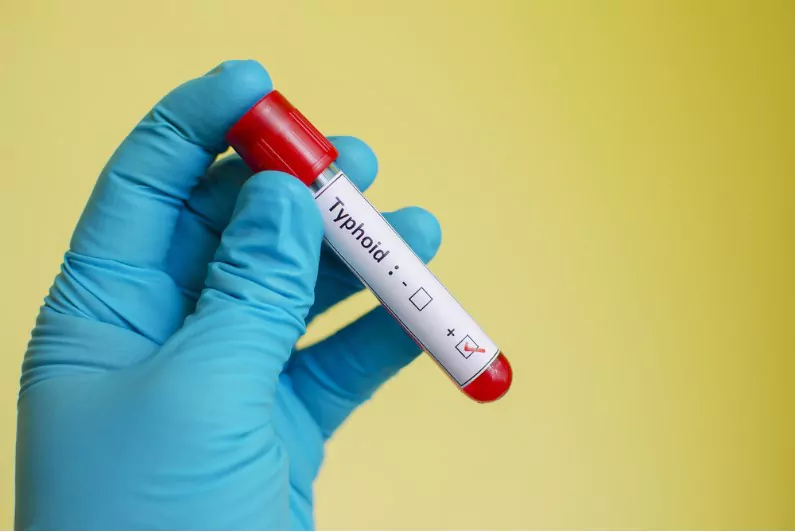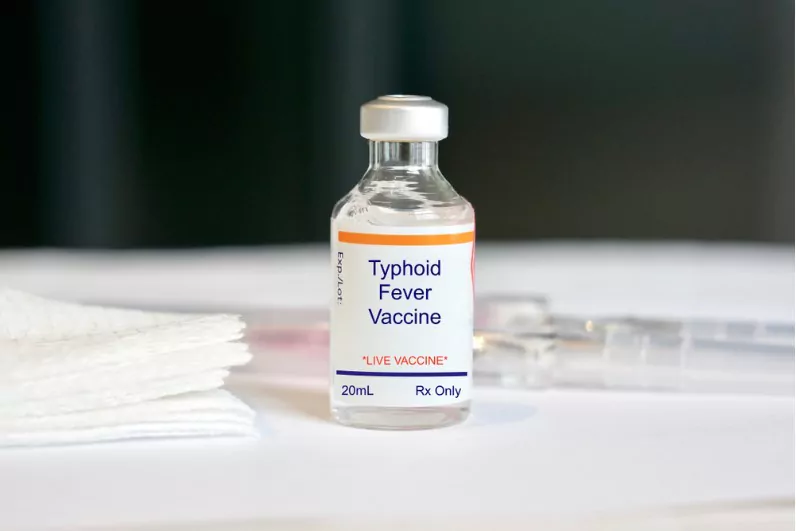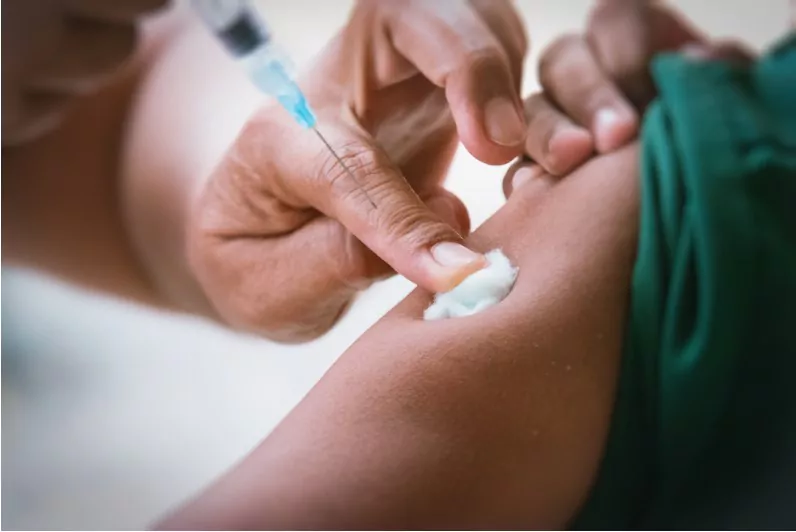How To Recover From Typhoid Weakness?

It’s a common experience after battling through an illness like typhoid fever to be left feeling weak and fatigued. Many people have a hard time getting back on their feet and returning to their usual activities and routines. Understanding how to recover from typhoid weakness is crucial in regaining your health and vigour. In this blog, we will walk you through an insightful and detailed guide that will help you to bounce back stronger after typhoid fever.
1 Understanding Typhoid Fever
Before delving into how to recover from typhoid weakness, it’s important to understand what typhoid fever is and why it results in such debilitating weakness. Typhoid fever is an infection caused by the bacterium Salmonella typhi. It is typically contracted through contaminated food or water, and its symptoms often include high fever, headache, stomach pain, and weakness.
The disease can become severe if left untreated, potentially leading to complications such as intestinal perforations or infections in other organs. Furthermore, even after the acute phase of the illness has passed, patients often feel very weak and tired for weeks or even months. This is known as post-typhoid asthenia.
2 Effective Tips to Recover from Typhoid Fever
Importance of Medical Treatment

The initial treatment for typhoid fever is crucial. Antibiotics are usually given to kill the bacteria and stop the progression of the disease. The recovery process begins with completing the prescribed antibiotic course, as premature discontinuation may lead to relapse or the development of antibiotic resistance.
Hydration: A Key to Recovery

Once the acute phase of the disease has been managed, the focus shifts to how to recover from typhoid weakness. An essential component of this recovery process is hydration. Typhoid fever can lead to significant loss of fluids and electrolytes due to fever, sweating, vomiting, or diarrhoea.
Rehydrating with water, oral rehydration salts, and fluids rich in electrolytes, such as coconut water and fresh fruit juices, will help replenish the body’s fluid levels. Staying well-hydrated helps in flushing out toxins and aids the body in its healing process.
Nutrient-Rich Diet for Strength Regain

Your road to recovery from typhoid weakness begins with nutrition. The body’s fight against the infection can deplete it of nutrients and energy. Thus, providing your body with nutrient-rich food is vital to speed up recovery and combat weakness.
- High-Protein Diet
The typhoid infection may cause you to lose your appetite, leading to muscle loss and overall weakness. Incorporating a high-protein diet is beneficial for restoring muscle mass and strength. Include lean meats, fish, eggs, dairy products, legumes, and nuts in your diet. - Stay Hydrated
Staying well-hydrated is an essential aspect of how to recover from typhoid weakness. Typhoid often leads to dehydration due to fever and sweating. Drinking plenty of fluids like water, herbal teas, or electrolyte-infused drinks can help restore fluid balance and maintain energy levels. - Boost Your Vitamins
Certain vitamins can help strengthen the immune system and speed up recovery. Vitamins A, C, E, and B-complex are particularly beneficial. Include fruits, vegetables, whole grains, and fortified cereals in your diet to get these essential vitamins. - Opt for Small, Frequent Meals
Eating smaller, more frequent meals can be easier on your digestive system and help you gradually increase your food intake. This strategy can be instrumental in replenishing energy levels and overcoming typhoid weakness.
Physical Rest and Gradual Exercise
Rest is a cornerstone in the process of how to recover from typhoid weakness. After an infection, your body needs time to heal and restore itself. Make sure you get adequate sleep and avoid strenuous activities.
As you regain your strength, slowly introduce light exercises like walking or stretching into your routine. Over time, increase the duration and intensity of your workouts. This gradual reintroduction of physical activity can help rebuild your stamina and muscle strength without overtaxing your body.
Mental Well-being

The process of how to recover from typhoid weakness isn’t just physical. It’s equally important to take care of your mental health. It’s normal to feel frustrated, anxious, or depressed when you’re not able to function at your usual pace.
Relaxation techniques like meditation, deep breathing exercises, and mindfulness can help manage these feelings and reduce stress. Cultivating a positive mindset and being patient with your body’s pace of recovery can go a long way in aiding the healing process.
- Meditation
Practising meditation can help improve your mood and reduce stress, facilitating faster recovery. Just a few minutes a day can make a significant difference. - Yoga
Yoga not only helps in stretching and strengthening the body but also has a profound impact on mental health. Light yoga poses, coupled with deep breathing exercises, can aid relaxation and recovery. - Reading
Engaging your mind in a constructive activity like reading can uplift your mood and keep you mentally active. Choose a book you enjoy and lose yourself in its world for a while.
Regular Medical Check-ups
Regular follow-ups with your healthcare provider are a key aspect of how to recover from typhoid weakness. These check-ups help ensure that the infection is completely cleared, monitor your recovery progress, and address any potential complications promptly. Remember, every individual’s recovery journey is unique, and your healthcare provider can provide personalised advice and care.
Supplements: An Additional Aid

While a balanced diet should supply all the essential nutrients needed for recovery, your doctor may recommend specific supplements to aid your recovery. These might include multivitamins, probiotics, and mineral supplements, which can address any deficiencies and promote overall health. Remember, supplements should not replace a healthy diet but should complement it.
Important Precautions
Understanding how to recover from typhoid weakness also involves knowing what to avoid during the recovery phase. Alcohol, tobacco, and caffeine can impair your body’s ability to heal, so they should be avoided. Likewise, avoid consuming raw or uncooked foods, as they could potentially harbour harmful bacteria and pose a risk of reinfection.
Additionally, stress and overexertion should be avoided. Listen to your body’s cues. If you feel tired, rest. Pushing yourself too hard can delay recovery.
Vaccination and Prevention

Finally, while this guide has focused on how to recover from typhoid weakness, it’s crucial to remember that prevention is always better than cure. If you live in or are travelling to an area where typhoid fever is prevalent, consider getting vaccinated.
Also, practise good hygiene, especially when it comes to food and water. Washing hands thoroughly before eating, drinking only from clean and reliable water sources, and ensuring that food is cooked thoroughly and stored properly can all help prevent typhoid fever.
3 Wrapping Up
The journey to recover from typhoid weakness can be challenging, but with a comprehensive understanding of the steps involved in the recovery process, you can navigate it successfully. Hydration, a nutritious diet, adequate rest, gradual exercise, regular medical check-ups, and maintaining good mental health are all crucial elements in the recovery process.
Remember, each person’s journey of recovery can differ based on individual health status and the severity of the disease. Always consult with your healthcare provider for personalised advice, and never hesitate to reach out if you’re feeling unwell or have any concerns about your recovery process.
Take it one step at a time. While the road to full strength may seem long and winding, with each passing day, you’re moving forward in your journey to health. Your body has a remarkable ability to heal, and with time, patience, and proper care, you will regain your strength and vitality.
Community Q&A
About This Article
This article has been viewed 767 times.



